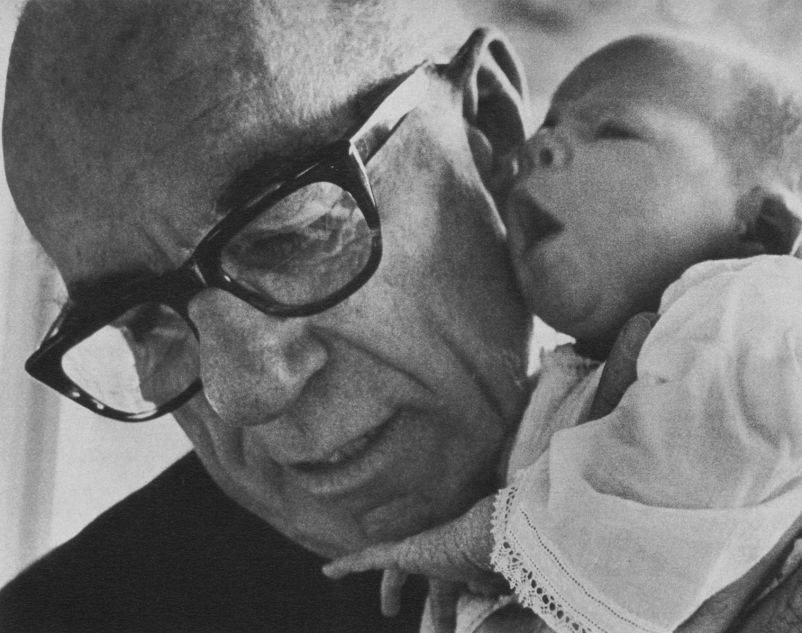On 14 July 1946, “The Common Sense Book of Baby and Child Care” by American paediatrician Benjamin Spock was published. The handbook for young parents was not only an iconic book of the 20th century, but also the first handbook in which the author calls for a child to be treated as an individual from the moment of birth. In the USSR, the book would be published for the first time in 1956 and would be the beginning of a revolutionary change in attitude towards children and childhood. In fact, it was only after the war that such a concept could have emerged - respect for the individual, the value of individuality, the right to freedom, as well as a delicate and caring attitude, as opposed to the authoritarianism and discipline that had so far prevailed.
Benjamin Spock was the eldest child in a large family, and caring for his youngest siblings determined both his choice of profession and his attitude towards life.
Apart from medicine, Dr Spock was a political activist, a prominent figure in the anti-war movement. He was credited with saying, “There's no point in raising children if they're going to be burned alive”. At the height of the Vietnam War, Spock was found guilty of "conspiracy to aid and abet evasion of service in the armed forces". The prosecution would ask for a sentence of two years in prison, but an appeals court would overturn the verdict.
In 1972, Dr Benjamin Spock decided to run for president of the United States on behalf of a coalition of left-wing actors. His campaign promises would include free health care, guaranteed minimum income for families, and an immediate withdrawal of all American troops from foreign countries. In 1976, he would run for vice president. He would spend his entire life as an opponent of the Cold War.
Benjamin Spock passed away on 15 March 1998 at the age of 94. US President Bill Clinton issued a statement the day after his death: “He taught all of us the importance of respecting children. He was a tireless advocate, devoting himself to the cause of improving the lives of children”.
However, some of Spock's medical recommendations would later be recognised as untenable and even dangerous. Russian physician Leonid Roshal, for example, would point out that an infant sleeping on its stomach could lead to mechanical asphyxia.
Source:
“The Common Sense Book of Baby and Child Care” by Dr Benjamin Spock, (1946)
























